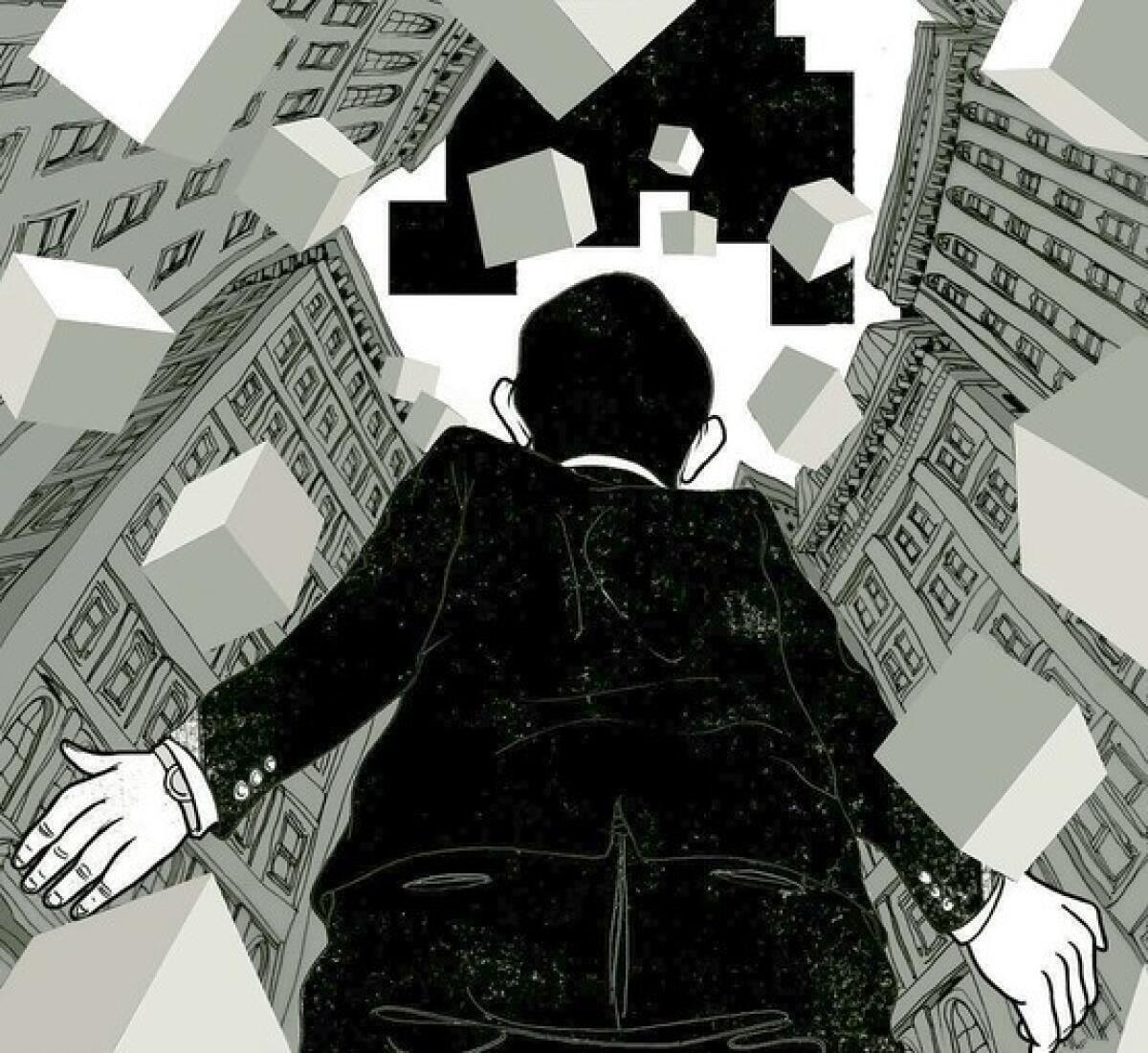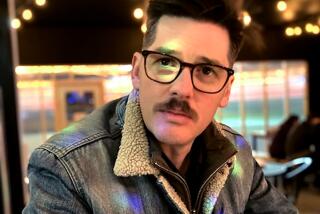‘Next: A Novel’ by James Hynes

Next
A Novel
James Hynes
Reagan Arthur Books: 320 pp., $23.99
Being obsessive, white, upper middle class and male isn’t exactly the prescription for high drama these days. Not while the earth is shaking and swallowing entire cities. Not while people are blowing themselves up in the name of some perceived greater good. And certainly not while we keep being warned that if we don’t vote for certain candidates, tidal waves of terrorists will soon arrive on our shores looking to kill each and every one of us. It’s enough to make anyone paranoid, really. And it’s absolutely enough to drive Kevin Quinn, the obsessive, white, upper-middle-class male at the center of James Hynes’ wildly inventive, stunning novel “Next” into a dizzying spiral of self- (and sexual) recrimination, comic misadventure and existential -- and then very real -- fear over the duration of a mere eight hours.
At 50 and facing the downward slope of his career and life, Kevin is the sort of man who can’t untether himself from his worst decisions, running them over and over in his mind until they become a constant symphony: Each of his actions in the present day are filtered through this cacophony. He works as an editor for an academic press at the University of Michigan, is sleeping with Stella, a woman 15 years his junior (though she claims to be 20 years younger), and is plagued by the failure of several other romantic relationships over the course of his life, most notably one with a woman who told him he “wasn’t capable of tenderness and passion.”
It’s a statement that, true or not, has imprinted itself on Kevin to the point that, as the novel begins, he’s flown from Ann Arbor to Austin, Texas (a city where “everybody dresses year round like they’re at the gym”) for a job interview and hasn’t even bothered to inform Stella. But he’s picked the worst week to travel, because terrorists have hit several European cities, only heightening the fears Kevin has developed since Sept. 11, 2001, that every plane is a potential bomb and every person on the street potentially has a Stinger missile in his back pocket. It’s an amorphous fear without discernible boundaries, and this makes it all the more palpable to Kevin: If there’s no way of knowing if it’s around the corner, there’s no way of knowing if it’s not around the corner.
The same could be said for Kevin’s own life. As he spends his day in Austin waiting for his job interview, he loses himself in the vision of a young woman who sat beside him on the plane -- a lithesome Asian woman who reminds Kevin of a collegiate lover named Lynda -- and, when he runs into his seatmate on the street outside of a Starbucks, he ends up chasing after her -- though, really, what he’s doing is chasing his past, chasing the memory of Lynda, a woman who “provoked no other emotion in him but desire,” their coupling proof of his passion. It’s a sad truth that we all hang onto the moments that disprove what we fear most about ourselves, despite all other evidence to the contrary.
In Kevin’s case, there’s plenty of evidence that he’s a cad of a certain kind -- there’s a bit of Richard Ford’s “Independence Day”-era Frank Bascombe here, both in style and substance -- and a fairly unapologetic one at that. That Kevin spends a great portion of the novel chasing after his seatmate in hopes of, presumably, having sex with her (he knows it’s highly improbable too) adds a desperate, sad note to the proceedings, particularly since every time the woman is anywhere near him, she fails to notice him in the least: “She sat next to me for three hours on the plane, six inches apart for three hours. . . . I’m wearing my magic ring of middle-aged invisibility, a dog-faced old burgher like Bilbo Baggins, only taller.”
In the larger scheme of the world, these are champagne problems, of course; and at first “Next” seems to be just an exceptionally well-written comic novel about middle age. But with great subtlety and nuance, Hynes begins to move the narrative into deeper, more compelling territory until the reader comes to find that Kevin isn’t merely looking for sex, he’s looking for a reason for his life, an order to his mistakes, a compelling set of answers to the questions he’s avoided addressing: Whom does he love? What does he really fear? What is it all worth? Did he get what he wanted from this life?
Kevin’s existence isn’t that different from anyone else’s -- he’s been touched by tragedy before, and it’s a familiar tragedy in the form of his father’s early death -- but what makes his inner journey especially compelling is that he understands this too. His life has not been special. His life has been, for the most part normal. But that doesn’t mean he shouldn’t be afraid: “[T]he whole world is jumpier than it was in 1974, and . . . he’s . . . resigned to the fact that sometimes the worst thing you can imagine happening, actually does.”
Comedy morphs into tragedy and morphs again into something altogether different so that the novel’s closest literary cousins are the seemingly incongruous “Straight Man” by Richard Russo and “Saturday” by Ian McEwan, but in fact “Next” is sui generis -- an essential piece of American literature that is both of its time and ultimately without present compare; a novel that is about us, all of us, living our lives in the mayhem of our own particular drama, inevitably blind to the surrounding mayhem until it is much too late.
Goldberg is the author of several books, including “Simplify” and, most recently, the story collection “Other Resort Cities.”
More to Read
The biggest entertainment stories
Get our big stories about Hollywood, film, television, music, arts, culture and more right in your inbox as soon as they publish.
You may occasionally receive promotional content from the Los Angeles Times.






